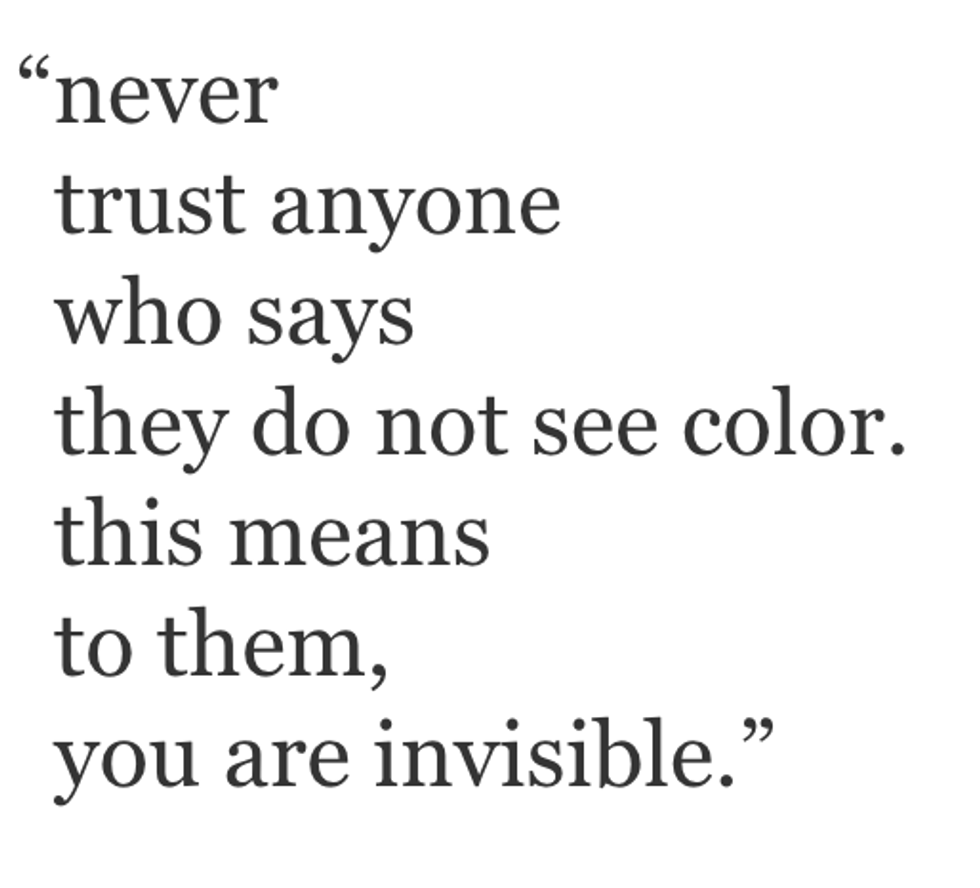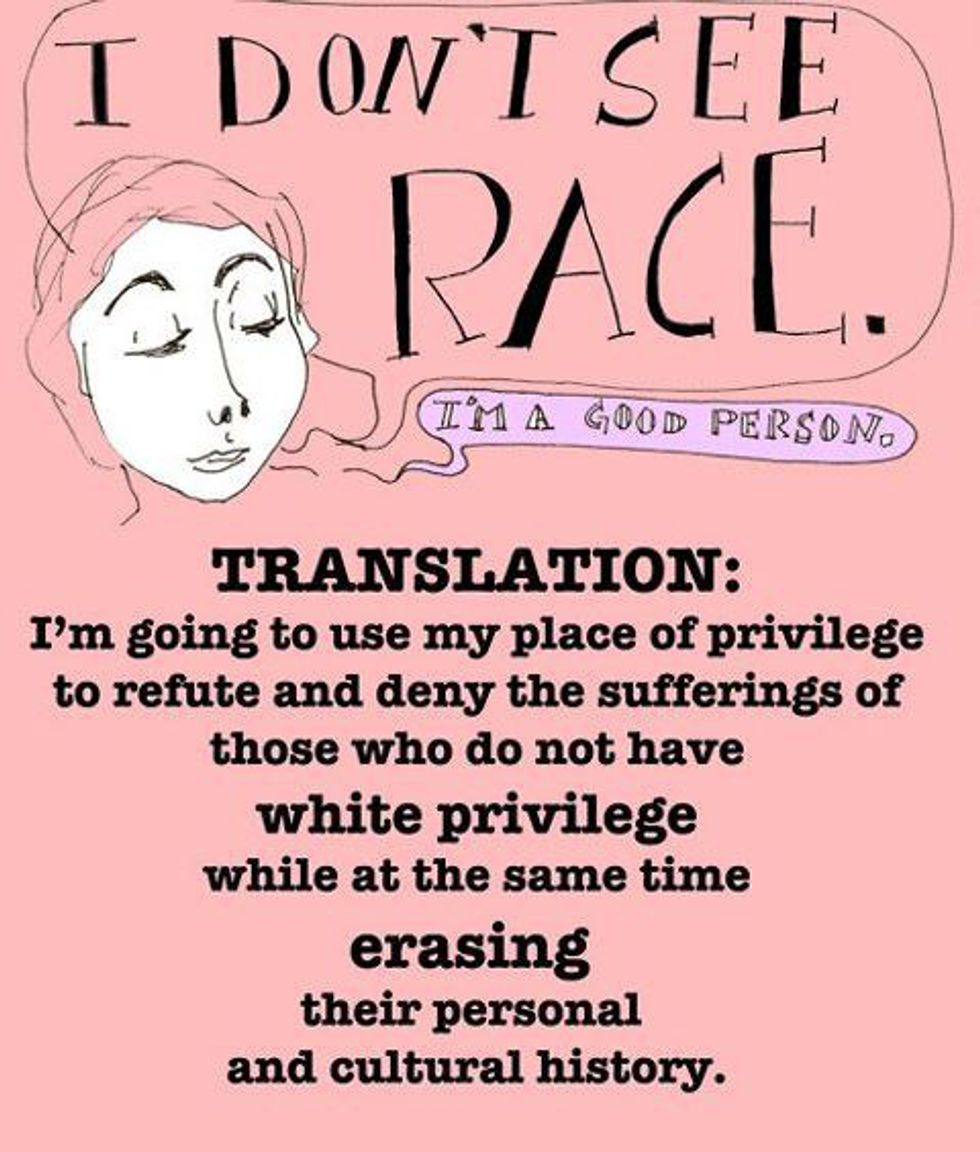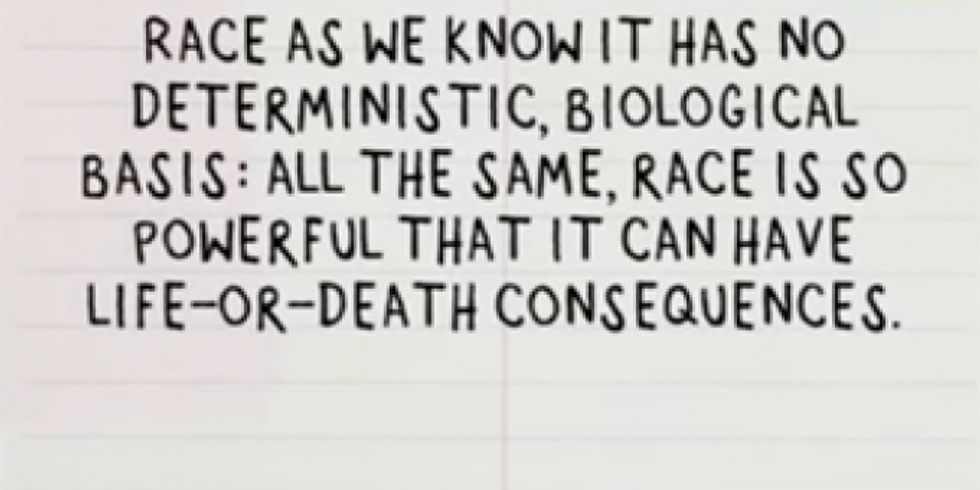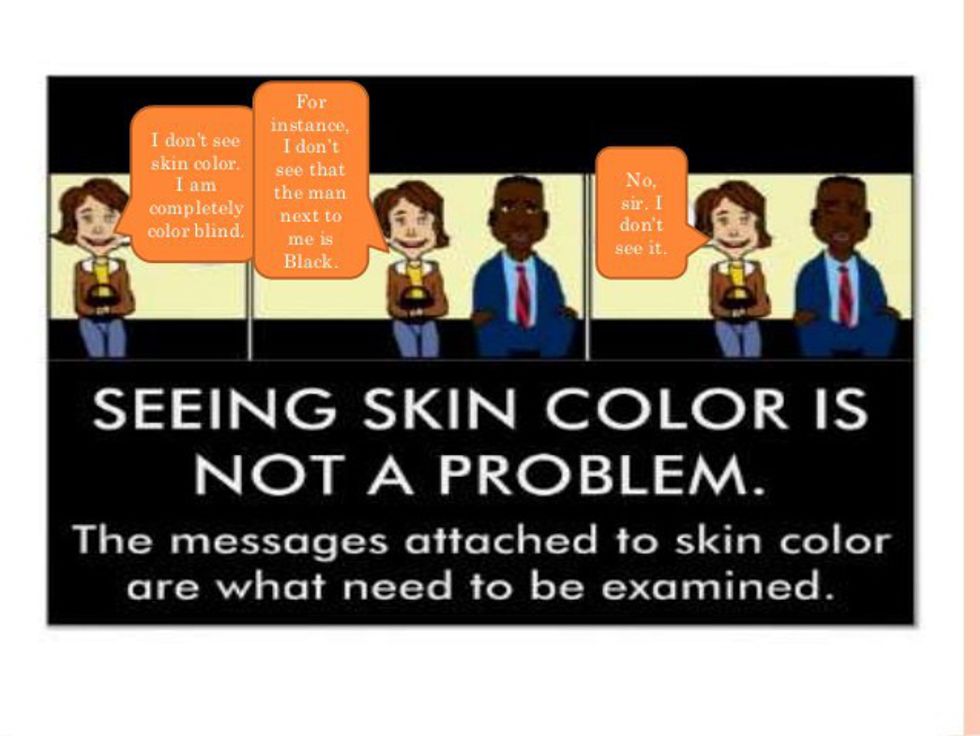*Before I get into the meat of this article, I would like to start by saying I’m not really a fan of writing about race. I feel like my experience as a person of color (POC) is ABSURDLY different from that of a black person and so often when we talk about race it has to do with anti-black racism in America. I have never and will never experience that type of very specific, awful, systematic, and life-threatening racism that black people experience. To try and say all people of color experience the same type of discrimination and racism is not only ignorant, but simply inaccurate. My goal for this article is to simply write from my perspective as an Indian woman with immigrant parents. At no point in this article will I be attempting to write about what it means to be black in America in an authoritative way because that is not my place. However, nonetheless I am a person of color and this idea of being colorblind to race affects me in a very real way. That being said...here’s my article for this week.*
To Everyone Who Thinks Being “Colorblind” to Race is a Good Thing...
Your colorblindness is part of the problem. First, let me explain that I don’t literally mean colorblind as in you can’t see the color red or green. I mean something more along the line of being colorblind to race or skin color. By saying, “I don’t see people as black, Asian, white, or whatever. I just see them as people. We all are just humans,” you are contributing to the problem of institutionalized racism in America. You are not, I repeat NOT, doing anyone any favors by saying that you don’t “see” color or acting like color doesn’t exist. (For future reference, by color I mean race unless specified otherwise.)
I know that people think they are making this profound, deeply accepting statement by saying they don’t see color. They think that it means that we are all human and bonded by a single human experience that we all experience. Don’t get me wrong, focussing too much on race isn’t benefiting anyone either. But to deny that we are people of color is to deny your (lack of) color also. Let me explain.
In saying that you don’t see color, you are saying you don’t see your own whiteness. That means that you don’t see your privilege that you’ve been born into just because you’re white. To say that you don’t see color is to deny every single person of color’s experiences as a person of color. If you don’t see my skin color, you are denying a core, integral part of not only my experiences and identity, but my very existence.
Our color, whether we like it or not, makes us who we are. It changes everything. Every experience we have is filtered through the lens that is skin color. My experience as a POC really isn’t that bad, to be honest. I experience racism in a more immature, ignorant way -- not in a life-threatening way. I have to deal with people appropriating my culture. I have to deal with people trying to talk about my culture and race in a more authoritative way than I when they don’t know anything about India or being Indian. But...what I deal with is very minor and more annoying than anything else compared to my friends who are black. Nonetheless, my race still plays a significant role in my life. And to say you don’t see color is to deny the significance race plays in EVERYONE’S lives.
That’s why you’re not doing me or any other colored person a favor by saying you don’t see color. I appreciate the notion and the intent but I’m letting you know that by saying you don’t see color, you actually make things worse. There has to be a balance. You have to be able to acknowledge color without letting it define that person’s entire being because while race is an integral part of all of us, it is not all we are. The balance is just something to strive for, I suppose.






















